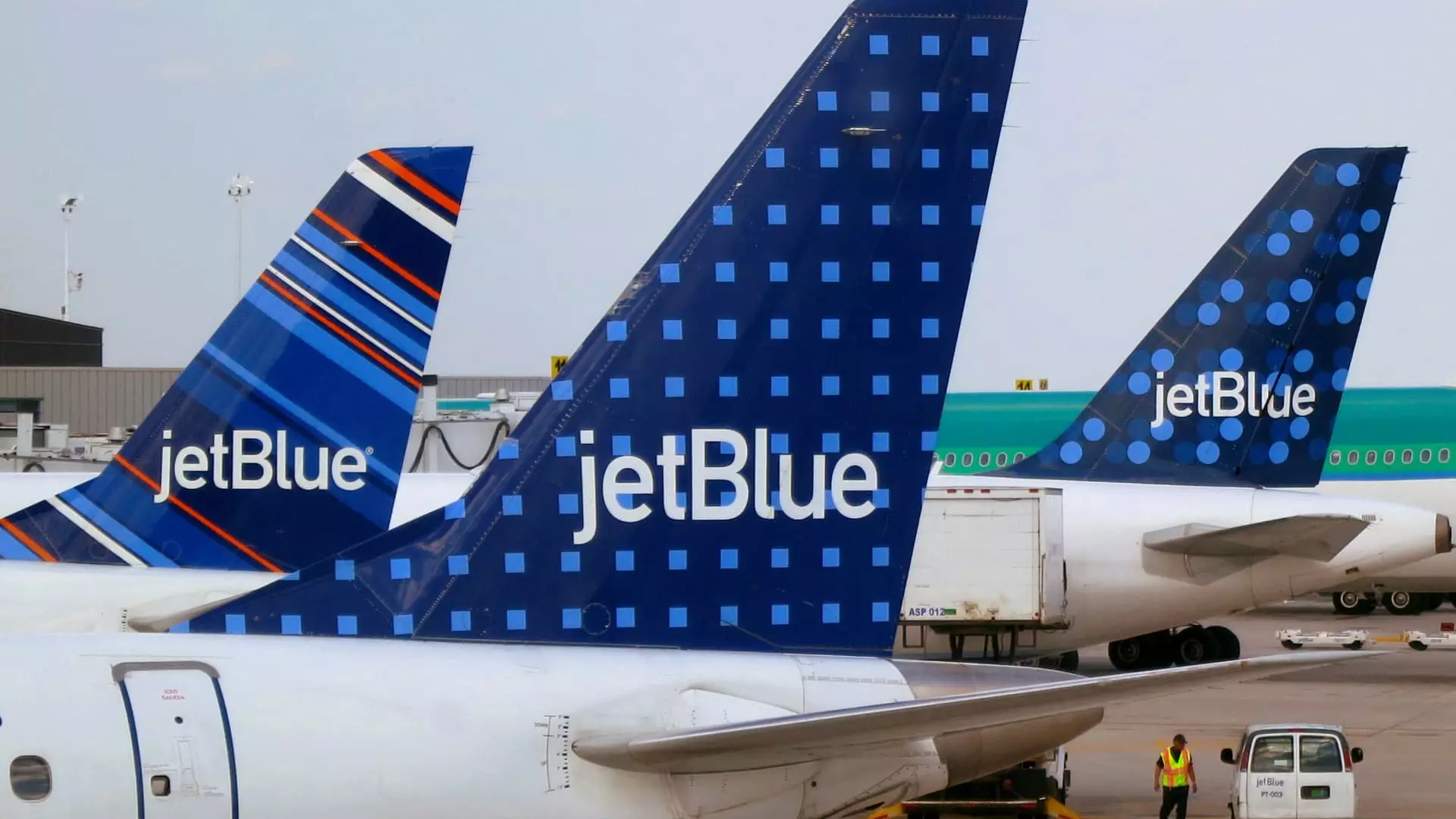In a landmark decision, the Department of Transportation (DOT) imposed a $2 million fine on JetBlue Airways, marking the first time the agency has penalized an airline for chronic flight delays. The airline was found responsible for a significant number of delays on four key routes from June 2022 to November 2023, drawing attention to the broader implications for the airline industry and customers alike.
According to the DOT’s findings, the problematic routes included flights from JetBlue’s primary hub at John F. Kennedy International Airport in New York to Raleigh-Durham International Airport in North Carolina; Fort Lauderdale and Orlando in Florida; and a route between Fort Lauderdale and Windsor Locks in Connecticut. These particular routes were labeled as chronically delayed due to at least 145 delays, raising questions about the adequacy of JetBlue’s operational management. The airline was blamed for more than 70% of these disruptions, which makes one wonder whether the airline underestimated the complexities of scheduling in congested airspaces.
Regulatory Pushback and Industry Standards
Transportation Secretary Pete Buttigieg emphasized the significance of this penalty, stating, “Today’s action puts the entire airline industry on notice that we expect their flight schedules to reflect reality.” This sentiment underscores a growing frustration within the government concerning unreliable flight schedules across the board. The penalties serve not just as a punitive measure against JetBlue but also as a potential precedent for how chronic delays will be handled in the future. The DOT’s definition of “chronically delayed” flights—those that arrive over 30 minutes late more than half the time—is a crucial threshold that other airlines must take into account moving forward.
In its defense, JetBlue shifted some responsibility onto the federal government, calling for better staffing of air traffic controllers and modernization of air traffic control systems. The airline’s statement reflects a growing sentiment among aviation leaders that the government must invest in the infrastructure necessary for efficient air travel. Notably, major carriers such as Delta and United have echoed these concerns, suggesting that issues extend beyond an individual airline to challenges that affect the entire industry.
Chronic delays not only affect the bottom line of airlines but also damage customer trust and satisfaction. Passengers facing repeated delays are likely to seek alternative travel options, impacting JetBlue’s market share. Moreover, if the airline must cut costs to pay the fine, this may lead to reduced services or increased ticket prices in the long run, both of which could deter travelers. The DOT’s decision to credit $1 million of the fine back to JetBlue as compensation for affected passengers indicates that the agency is keenly aware of these repercussions.
JetBlue’s experiences may serve as a warning to other airlines facing similar operational challenges. The DOT has announced that it is investigating other carriers for unrealistic flight schedules, raising the stakes for airlines nationwide. If the agency continues to apply stringent measures, the entire aviation sector may be forced to reevaluate operational strategies and improve scheduling reliability. For JetBlue, improving its on-time arrival rate, which ranked ninth out of ten among U.S. carriers for the January to September period in 2024, will be critical to restoring its reputation.
JetBlue Airways’ unprecedented fine shines a spotlight on larger systemic issues facing the airline industry. While JetBlue seeks to hold the government accountable for air traffic control inefficiencies, it must also confront its operational shortcomings. Moving forward, the industry must collectively strive to achieve greater reliability for air travel, as both passengers and regulators demand accountability and transparency. The outcome of this situation could lead to significant changes that influence how airlines operate, impacting travelers and the industry as a whole for years to come.

